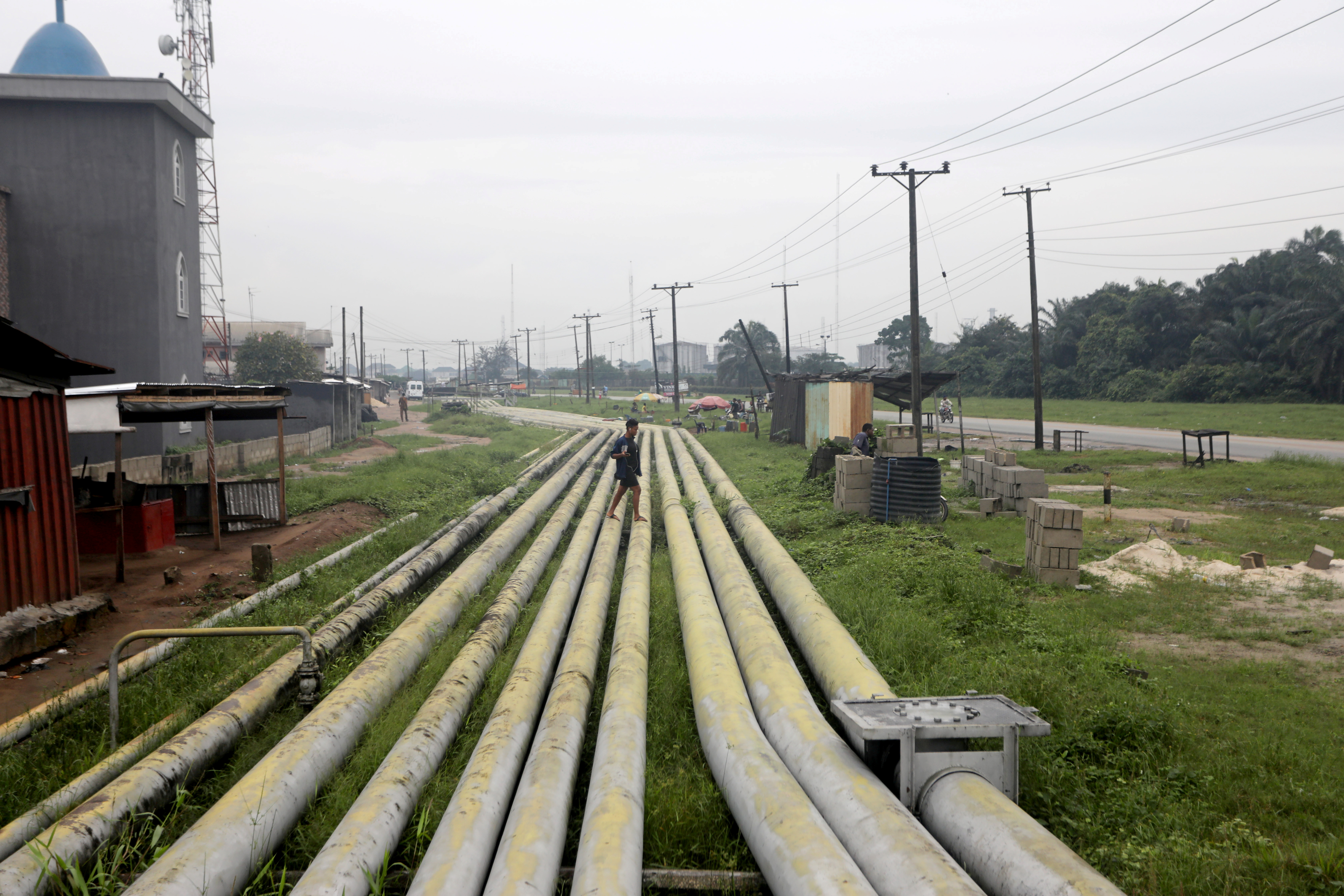
Nigeria puts oil companies under pressure
Late last week, the Court of Appeal in The Hague ruled that oil company Royal Dutch Shell’s Nigerian subsidiary is liable for damages caused by oil spills in two Nigerian villages between 2004 and 2007. In addition to covering damages, the company must also install a leak detection system in one pipeline to prevent further spills. The subsidiary, Shell Petroleum Development Company of Nigeria Ltd., has maintained that the spills were due to sabotage, which would reduce its liability, but the Court of Appeal said that the company did not prove that claim in the case of two of the spills “beyond a reasonable doubt.” The litigation is not yet over: Compensation is yet to be determined, and the ruling can still be appealed to a higher court. The issue of whether Shell can be held liable for a third spill that was the result of sabotage is still under consideration.
In other oil news, this week, Nigeria’s Economic and Financial Crimes Commission (EFCC) announced that a federal court had signed off on an arrest warrant for the managing director of ExxonMobil Nigeria, Richard Laing, after he refused three invitations to appear before investigators. Notably, Liang himself is not under investigation: Authorities are looking into allegations of procurement fraud worth over $213 million in a pipeline project. No charges have been filed.
African countries start to clear second COVID-19 wave, begin vaccine rollouts
Although at least 40 African countries have experienced a second wave of coronavirus cases in recent months, many are starting to see a downward tick in cases. South Africa, where a more contagious COVID-19 mutation emerged in December, is recording its fewest daily cases since November. Countries like Rwanda, Zimbabwe, and Kenya too seem to have cleared another peak. Access to testing remains uneven across the region, however, with eight countries accounting for 75 percent of all tests.
After declaring a national disaster and losing two Cabinet ministers to COVID-19 in January, Malawi has begun to set up field hospitals to weather its recent surge in coronavirus-related hospitalizations. In Zombo, health officials are converting the State House (a residence belonging to the president of Malawi) into a treatment facility, while a field hospital at Bingu National Stadium in Lilongwe with the capacity of 300 beds has started receiving patients.
South Africa, after receiving its first million doses of AstraZeneca’s COVID-19 vaccine, joins Seychelles, Morocco, Algeria, and Egypt this month in rolling out vaccinations. In addition, COVAX, the facility seeking to accelerate equitable access to COVID-19 vaccines, plans to begin disbursing vaccines to more of Africa by the end of the month. While it remains to be seen whether all African countries will participate—and to what extent—COVAX aims to provide participating countries with vaccine coverage for up to 20 percent of their population. Tanzanian Health Minister Dorothy Gwajima announced in a press conference on Monday that “the ministry has no plans to receive vaccines for COVID-19,” a proclamation on the heels of President John Magufuli expressing doubts last week that the vaccines were effective.
For more on potential challenges styming vaccine rollout in Africa, see Uwagbale Edward-Ekpu’s Foresight Africa 2021 viewpoint, “Navigating the complexities around a COVID vaccine in Africa.”
Election challenges in Uganda continue
On Monday, Ugandan opposition leader Bobi Wine filed a challenge to the results of the recent presidential election to the country’s supreme court. Lawyers representing the National Unity Platform (NUP), Bobi Wine’s political party, are calling on the courts to overturn the election results on multiple grounds, accusing the incumbent of ballot stuffing, voter intimidation, and arresting supporters. The election and its tumultuous aftermath have drawn criticism from the international community, with the United States Department of State announcing that it is considering sanctions against “Ugandan individuals found to be responsible for election-related violence or undermining the democratic process.”
On Wednesday, newly reelected Ugandan President Yoweri Museveni ordered his finance minister to suspend a European Union-backed multimillion-dollar fund, the Democratic Governance Facility (DGF), that supports local government and nongovernmental groups working to ensure democracy, promote human rights, and improve accountability and governance. In his correspondence to the finance minister, Museveni accuses the DGF of having been “used to finance activities and organizations designed to subvert Government under the guise of improving governance.” While the president has suspended the fund’s operations in Uganda until his Cabinet and a new oversight board review the matter, the fund’s chief, Nicole Bjerler, says they “remain open to dialogue with the government.”
"oil" - Google News
February 06, 2021 at 07:33PM
https://ift.tt/3aFF4IX
Africa in the news: Nigerian oil, COVID-19, and Uganda updates - Brookings Institution
"oil" - Google News
https://ift.tt/2PqPpxF
Shoes Man Tutorial
Pos News Update
Meme Update
Korean Entertainment News
Japan News Update
Bagikan Berita Ini














0 Response to "Africa in the news: Nigerian oil, COVID-19, and Uganda updates - Brookings Institution"
Post a Comment